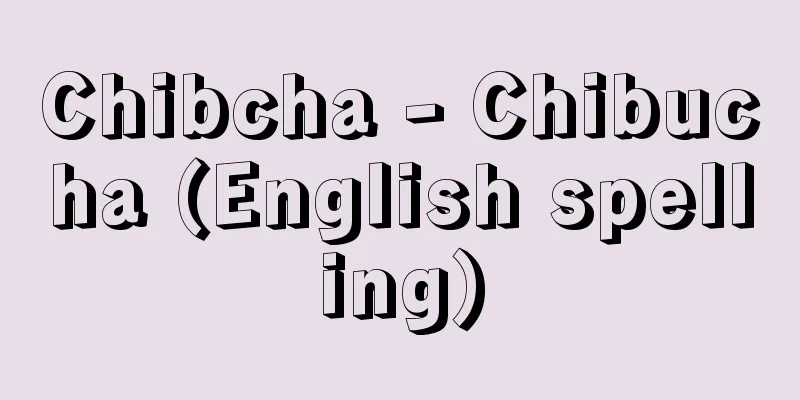Chibcha - Chibucha (English spelling)

|
When the Spanish arrived in the Americas in the 16th century, they lived in the area from present-day Ecuador to Nicaragua. They called themselves Muisca. In particular, they formed several emirates in the highlands around Bogota, Colombia, which were the second most centralized after the Inca, and fought wars or united with each other around two powerful emirates. The chiefs had absolute power and used many gold products. Land was inherited through the paternal line, but the chieftaincy and priesthood were inherited matrilineally. Chiefs and priests were required to undergo training that included fasting and seclusion for six to twelve years. Food, cloth, gold, and jewels were offered to the gods in temples, mountains, lakes, and caves, and slaves and children were sacrificed to the sun god and to pray for victory in battle. Economically, they were based on agriculture, with corn and potatoes as their main crops. Although the Chibcha people were less developed than the surrounding groups in terms of pottery making, weaving and other technologies, they were famous for their goldsmithing, making various gold products from gold dust. In particular, in the Emirate of Guatavita, there was a ritual in which the chief would cover his entire body in gold dust before entering the lake, and rumors of this attracted Spanish conquerors searching for El Dorado (the land of gold), and in 1537, the Chibcha Emirate of Bogotá was conquered by a group led by Jimenez de Quesada. The Chibcha language also disappeared in the 18th century. [Itabashi Masami] [References] | |Source: Shogakukan Encyclopedia Nipponica About Encyclopedia Nipponica Information | Legend |
|
16世紀にスペイン人がアメリカ大陸に到達したとき、現在のエクアドルからニカラグアにかけて住んでいた人々。彼ら自身はムイスカと自称していた。とくに、コロンビアのボゴタを中心とした高原地帯に、インカに次いで中央集権化されたいくつかの首長国を形成し、二つの強力な首長国を中心に互いに戦争したり連合していた。首長は絶対的な権力をもち、数々の黄金製品を使っていた。土地は父系を通して相続されたが、首長職と神職は母系的に継承されていた。首長や神官は6年から12年間にわたる断食、隔離を含む訓練を必要とした。神殿、山、湖、洞穴などで食物、布、金、宝石が神に捧(ささ)げられ、太陽神に対して、また戦いの勝利を祈って奴隷や子供がいけにえにされた。経済的にはトウモロコシ、ジャガイモなどを主作物とする農耕を基盤としていた。土器作り、織物などの技術は周辺の諸集団に比べてそれほど発達していなかったが、チブチャ人を有名にしたのは彼らの金細工であり、砂金からさまざまな金製品をつくっていた。とくにグァタビータの首長国では、首長が全身に金粉をまぶして湖に入る儀礼があり、このうわさが、エル・ドラド(黄金郷)を探し求めるスペインの征服者たちをひきつけ、1537年にヒメネス・デ・ケサーダの一隊によってボゴタのチブチャ首長国は征服された。18世紀にはチブチャ語も消滅した。 [板橋作美] [参照項目] | |出典 小学館 日本大百科全書(ニッポニカ)日本大百科全書(ニッポニカ)について 情報 | 凡例 |
>>: Chifusokusai Sosho (English: Zhi-bu-zuzhai cong-shu)
Recommend
Brokerage - Nakagai
A merchant or a type of business activity in the E...
Cow Town
…In 1875, a Northwestern Mounted Police garrison ...
"Fountain" - Izumi
…His wife, Hilda Vaughan, was also a famous novel...
Gully erosion
An erosive process that creates rain crevices. Rai...
Village - Mura
〘 noun 〙 (possibly of the same origin as "mur...
proportions
...This comprehensive concept of music collapsed ...
Thietmar (English spelling)
975‐1018 German clergyman and chronicler. Also cal...
vitascope
… [The history of action movies] Before The Great...
Equal Opportunities in Education
One of the principles that supports modern public...
Onagi River
A river that flows through the northern part of K...
Schoolchild evacuation
This was a measure taken at the end of World War ...
Yan Wen-gui (English name)
A court painter in the early Northern Zong Dynasty...
Formula for solutions
For some types of equations or simultaneous equati...
Sitwell Siblings - Sitwell Siblings
Three British siblings and sisters from the Barone...
Salvia lutescens (English spelling) Salvia lutescens
…[Murata Gen]. … *Some of the terminology that me...









